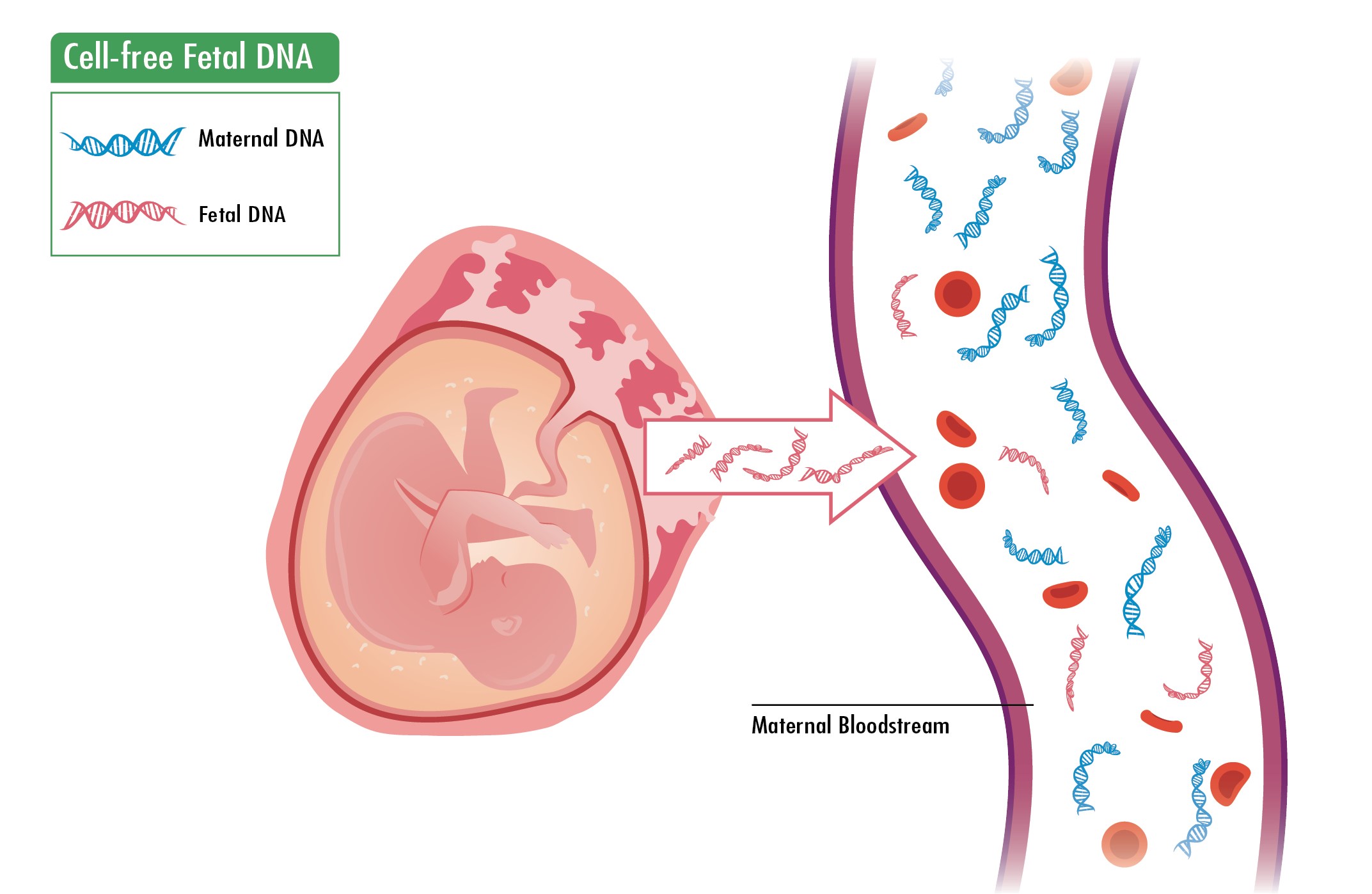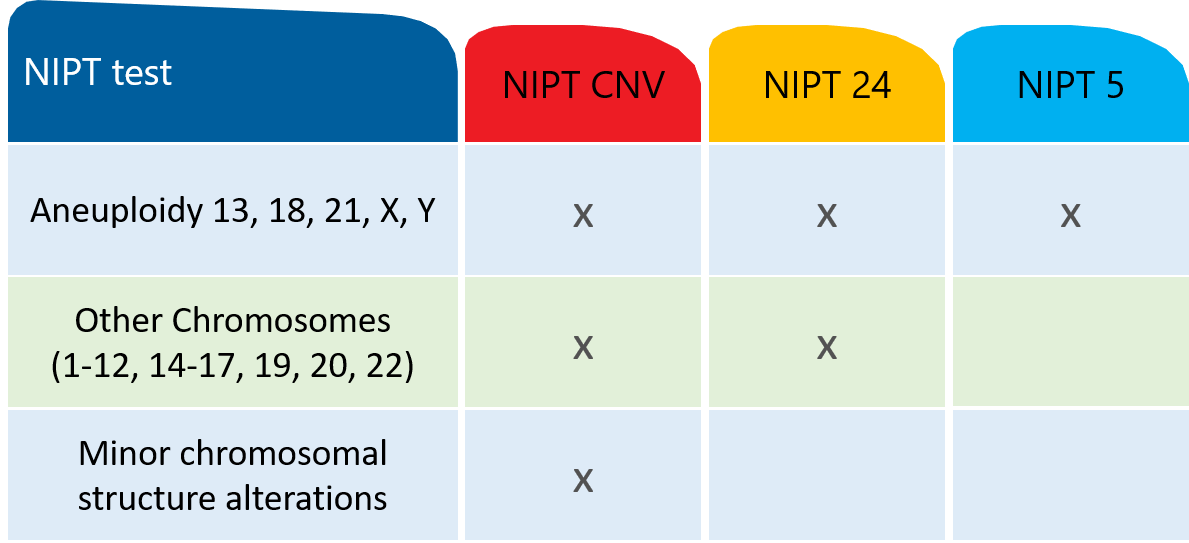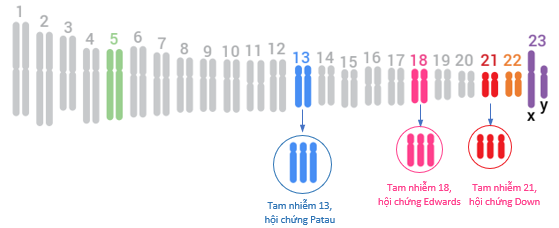Non-Invasive Prenatal Test
- What is the non-invasive prenatal test (NIPT)?
NIPT is a non-invasive prenatal test, based on the analysis of cell-free fetal DNA fragments (cffDNA) that exist freely in the mother's blood, thereby helping to detect early chromosomal abnormalities, especially trisomies that cause Down, Edwards and Patau syndromes.

NIPT is used to screen for common chromosomal mutations and disorders that cause congenital malformations such as Down syndrome (trisomy 21, caused by an extra chromosome 21), trisomy 18 (caused by an extra chromosome 18), trisomy 13 (caused by an extra chromosome 13) and changes in sex chromosomes. Accuracy, specificity and sensitivity are very high, >99%.
- Advantages of NIPT
NIPT is considered non-invasive because it only requires a blood sample from the pregnant woman and does not pose any risk to the fetus. NIPT is a screening test, meaning it does not give a definitive answer as to whether the fetus has a genetic condition. In some cases, NIPT results show an increased risk of a genetic abnormality when the fetus is actually unaffected (false positive) or results show a decreased risk of a genetic abnormality when the fetus is actually affected (false negative). Because NIPT analyzes both fetal and maternal cfDNA, the test can detect genetic conditions in the mother.
- Who need?
All International obstetrics and gynecology organizations recommend including NIPT in the prenatal screening process for ALL PREGNANT WOMEN.
In particular, the following groups of subjects should do NIPT during pregnancy:
Ø Pregnant women from 35 years old
Ø Women who have had multiple miscarriages, stillbirths, or premature births
Ø Women who have given birth to children with congenital malformations or family history of genetic diseases
Ø Have ultrasound results, Double test, Triple test for high-risk children
- Testing process
- Our NIPT tests

Schedule a consultation!
Our experts are going to contact you soon!






